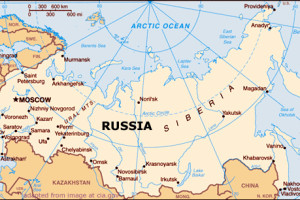RUSSIALINK: “Russia’s Human Rights Sphere Has a Female Face; Away from the public eye, women are at the forefront of the fight against human rights abuses” – Moscow Times

(Moscow Times – themoscowtimes.com – ANASTASIA MANUILOVA – October 30, 2018)
Think back to the most high-profile human rights cases in Russia in recent years – Oleg Sentsov, Ildar Dadin, Oyub Titiyev – and they almost always concern men. Away from the public eye, however, it is usually women who are working to defend and free them.
Although women are underrepresented in almost all spheres of Russian society, they dominate one in particular: human rights.
There is certainly no shortage of work. During Vladimir Putin’s first presidential term, between 2002 and 2004, Freedom House described Russia as “partially free,” giving it a score of five on political rights and civil liberties (one being most free, and seven least free).
Just four years later, Russia’s rank had taken a bad hit. The country was “not free,” Freedom House said, handing it a score of six for political rights and five for civil liberties. This year, Russia scored a seven in the political rights category.
Women, especially, have made it their task to fight back.
“The defense of human rights has a female face in Russia,” says prominent rights defender Zoya Svetova. “If you think about Russia’s most famous advocates – Anna Politkovskaya, Natalia Estemirova, Karina Moskalenko – they’re all women.”
This was not always the case, says Alexandra Krylenkova, a human rights defender from the St. Petersburg Observers group. In the 1990s there were many more men in the field, she says. “Back then, human rights advocates were mainly supported by international foundations, so they could have a career and be well paid. It was prestigious,” she says. “In my view, that’s why there were many more men involved.”
Times have changed. With Russia’s human rights sphere under mounting pressure from the authorities – including the passing of the infamous foreign agents law which restricts access to foreign funding – many men have turned their backs on the profession, leaving behind them a vacuum which is being filled by women.
Free to advance
Women don’t just dominate in terms of their numbers. They are also advancing to the top positions within rights groups. Natalia Taubina, the head of the Public Verdict Foundation, which helps victims of police abuse, is just one example.
Her gender has not been an obstacle to her work as it might have been in other spheres in Russia, she says. “I’ve never felt any gender discrimination by either government officials or prisoners,” she told The Moscow Times.
In fact, in Russia the sphere of political activism is more democratic than society in general, which has allowed women to advance to higher-ranking positions, says Svetova.
Eva Merkachova, deputy chairman of the prison inspection group Public Monitoring Commission in Moscow, says in many cases inmates are more open with women about abuse they suffer. This is especially important during visits to Russian prisons. “I was once part of a group of advocates who conducted prison visits,” she recalls. “My male colleagues didn’t receive any complaints from prisoners. But when I spoke to them with some other women on the team, we got a lot of information.”
According to Krylenkova, women are perceived as more approachable. “This is one way in which gender stereotypes work for the better,” she says.
In many cases, being a woman can also be an advantage when dealing with government officials, says Merkachova. Women are perceived as less threatening than men and civil servants feel they can learn more about the victim from women, she suspects. But “in the past – and sometimes today – male activists still get the last word at meetings with government officials,” Taubina adds.
The trend for men to set the tone, however, is shifting with time. For the most part, activists themselves are encouraging that change. “Some officers at a prison I was visiting told me that I should be dressed like a man,” Merkachova remembers. “No dresses, no high heels so that we wouldn’t get any additional attention. We, of course, refused to change our clothes and we were allowed in.”
Where it hurts most
According to Krylenkova, women are less likely to be targeted in the line of duty or in setups. “The data shows that human rights activists who have been falsely accused of bribery were all men. It is impossible to imagine a woman being accused of graft. No one would believe the accusation.”
But they do run other risks specific to their gender, such as being threatened with losing custody of their children.
“Women talk about this every day, but I have never heard men complaining about it,” Krylenkova says.
According to Svetova, it is a cloud that hung over many well-known names such as Politkovskaya and environmental activist Yevgenia Chirikova. “Some send their children abroad. Some leave the country entirely. Some didn’t do anything and were just killed,” she says.
The other consideration for female rights defenders is how to balance family life with work. But, according to Merkachova, the answer to that question varies from person to person.”I went back to work – visiting prisons – three days after my child was born,” she says. “Activism is a freelance job. You can choose when to work and for how long.”
Ultimately, human rights activism in Russia has reached total gender equality in one important sense, Svetova quips.
Men and women “have an equal chance of being killed,” she says. “If their activism seriously threatens politicians, then gender won’t make a difference.”
